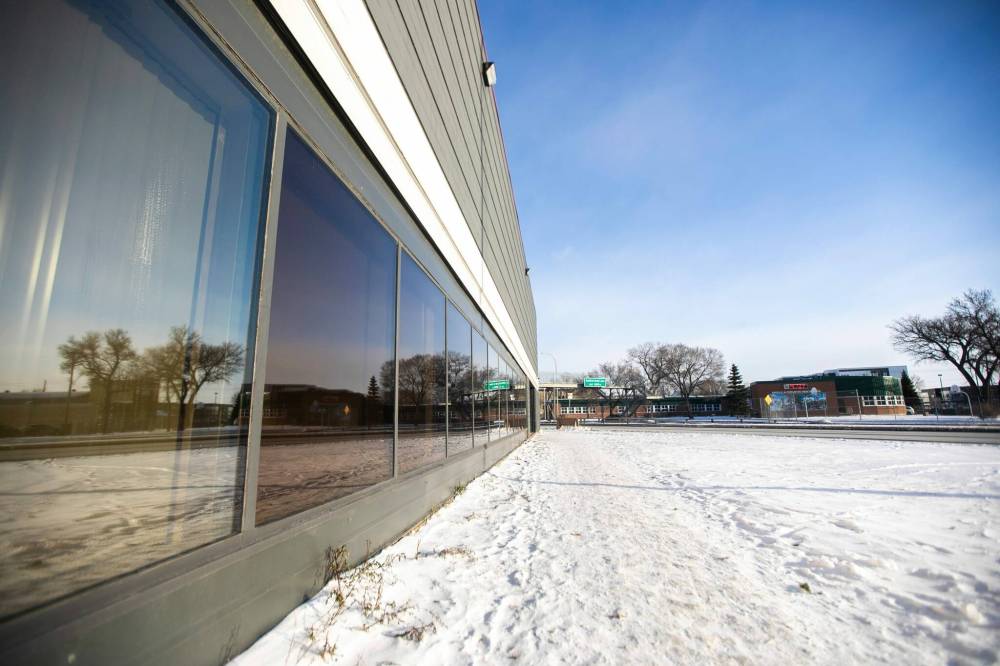The Kinew government handed its political opponents a gift this week.
As the NDP government rolls out the province’s first supervised consumption site for drug users, it failed to consult community stakeholders over a proposed site in a South Point Douglas building. It also chose a location right across the street from a school.
That’s red meat for the Opposition Progressive Conservative party, which is ideologically opposed to the sites, even though the harm-reduction strategy has proven time and time again across Canada and around the world to save lives by preventing drug overdoses.

MIKAELA MACKENZIE / FREE PRESS FILES
The government should have done consultations before choosing its proposed spot for a supervised consumption site at 200 Disraeli Freeway, Tom Brodbeck writes.
That evidence doesn’t matter to those who are philosophically against the sites. They continue to claim, without evidence, that they enable drug users and create unsafe conditions for local communities.
Opponents, including the Manitoba Tories, instead promote the false dichotomy that government should provide treatment options instead of safe consumption sites, as if the two are mutually exclusive. They’re not.
Governments can do both. In fact, supervised consumption sites are often the gateway to treatment; they are trusted places where drug users are introduced to treatment options, sometimes for the first time.
Despite that strong evidence, governments still have to take great care in how and when they open the sites, if for no other reason than to counteract the misinformation disseminated by critics.
The NDP government has failed spectacularly on that front, giving their political opponents an arsenal of ammunition to attack the proposed site at 200 Disraeli Fwy.
What government should have done before selecting a location was consult with local community members, not only to get their feedback but also to provide them with information about how the harm-reduction strategy saves lives.
They should have also chosen a spot that is not in close proximity to a school or a child-care centre.
Not only did the province fail to do the above, the NDP also appears to be proceeding in secret. Government did not announce the site location, it was discovered on a Health Canada website that shows the province applying for an exemption under the federal Controlled Drugs and Substances Act (the exemption is required to open a supervised consumption site).
Given the sensitivity and controversy around the sites, fuelled largely by critics and their misinformation, that is not the way this should have been rolled out. The province should have been open and transparent with the public during every stage of development, including site selection.
The Tories and other critics will now blend their misinformation tactics with the procedural failings of the Kinew government in their attempt to create fear around the proposed site.
“Provinces across the country — Ontario and other ones, as well — are closing consumption sites,” said MLA Carrie Hiebert, the Tory critic for housing, addictions and homelessness. “There’s a reason for that — it’s safety.”
Actually it isn’t. It’s ideology. The decision by the Ford government in Ontario to close 10 supervised consumption sites was criticized by the province’s auditor general in her 2024 annual report released this week. It included a performance assessment of the province’s opioid strategy and the Tory government’s decision to close the 10 sites by March 2025.
“Supervised consumption services… are proven life-saving interventions,” auditor general Shelley Spence wrote in her report.
Spence blasted the province for failing to assess the impact of closing the sites. She found internal government documents acknowledged that the planned closures increased the risk of overdose deaths, would put additional pressure on hospital emergency rooms and would increase the amount of discarded drug supplies, including needles, in public places.
In 2022-23, none of the more than 2,500 opioid-related deaths in Ontario happened at supervised consumption sites and none of the 3,600 overdoses reported by them at their sites resulted in death, the report says.
“Over 1,500 of these potentially fatal overdoses were prevented at the 10 to-be-closed supervised consumption services sites,” Spence wrote in her report.
It’s easy for that evidence to get lost in the debate, though, when government is not open and transparent with the public and fails to consult with community stakeholders before opening a site.
The NDP government will now have to move into full damage control to clean up the mess it created. It may even have to pick another site. Whether or not there is demonstrable harm in operating a safe consumption site across the street from a school, the appearance — especially for skeptics of harm reduction — is bad.
This was a major strategic error by the Kinew government.
tom.brodbeck@freepress.mb.ca

Tom Brodbeck
Columnist
Tom Brodbeck is a columnist with the Free Press and has over 30 years experience in print media. He joined the Free Press in 2019. Born and raised in Montreal, Tom graduated from the University of Manitoba in 1993 with a Bachelor of Arts degree in economics and commerce. Read more about Tom.
Tom provides commentary and analysis on political and related issues at the municipal, provincial and federal level. His columns are built on research and coverage of local events. The Free Press’s editing team reviews Tom’s columns before they are posted online or published in print – part of the Free Press’s tradition, since 1872, of producing reliable independent journalism. Read more about Free Press’s history and mandate, and learn how our newsroom operates.
Our newsroom depends on a growing audience of readers to power our journalism. If you are not a paid reader, please consider becoming a subscriber.
Our newsroom depends on its audience of readers to power our journalism. Thank you for your support.